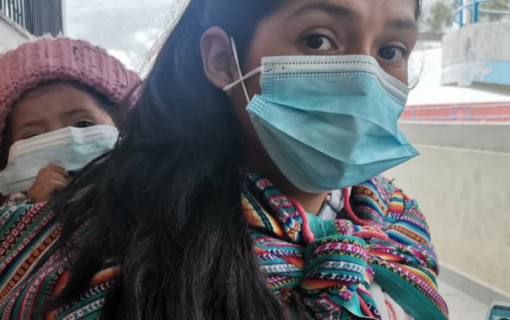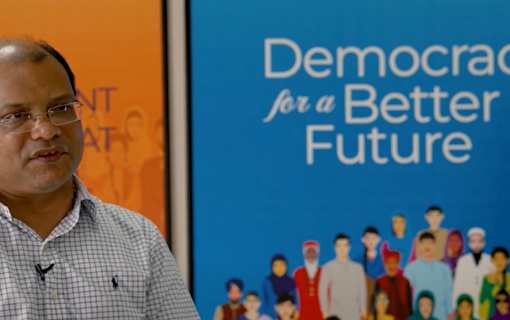Togo: Election Assistance Project, December 11, 1993 - January 29, 1994, Final Activity Report
Summary
From December 13, 1993 to January 28, 1994, IFES conducted an election assistance project in Togo. The goal of the project was to assist the Togolese election entities in their preparations for legislative elections scheduled for January 20, 1994. This was achieved through technical advice to the National Election Commission (CEN), the Secretariat of State (SECE), and the Ministry of Territorial Administration and Security (MATS). As an organization which has conducted activities in Togo since early 1992, IFES also acted as a liaison between the Commission, non-governmental organizations and international community representatives.
During the first four weeks of the project, team members Hilary Whittaker and Theophane Noel reviewed the procedures used at the August 25 presidential election to provide the Togolese with one set of current election administration information. The avis techniques, or technical memoranda that were used effectively on the previous IFES project were employed again and augmented to deal with such subjects as candidate registration procedures, polling sites in military barracks, voter registration card management, standardized listing methods, and election-night computer coding and reporting. By December 23, the IFES team delivered a series of avis techniques and work calendars which identified the preparations still remaining before the January 23 elections. These avis were shared with (and approved by) other international experts working in Togo, then presented to the SECE, MATS and CEN as well as the Comire de Suivi of diplomatic representatives from Burkina Faso, France, the United States, Germany, Egypt and other countries.
By the end of the year, it was evident to all international experts that proper elections could not be prepared by January 20. On January 6, the Togolese government announced that the elections would be postponed until February 6 and 20. The announcement came after a January 5 coup attempt triggered a series of attacks on military barracks and a major Togo-Ghana border checkpoint that resulted in a four-day dusk-to-dawn curfew. The government denied that the postponement and the coup attempt were related.
During January 1994, the team produced new guides for poll workers, vote counters, local election commission field coordinators, and party delegates. The team also produced guides for vote tallying and reporting procedures and produced a series of draft correspondence, instructions, and internal working documents and forms for the National Election Committee.
The IFES team provided guidance to the US Embassy, USAID Togo, and other international representatives regarding the status of election preparations, minimum standards of fairness to observe, and equipment requirements of the National Election Commission or related offices. The team was successful in obtaining financing for training materials, staining ink, election workers' back wages, as well as additional technical consultants.
Throughout the election process the government cut legal corners and decreed new procedures as it found expedient without regard to the Constitution and reinterpreted election law according to need. Ignoring internationally accepted standards, the Minister of Foreign Affairs stated that no local observers would be permitted in the polling stations. Less than a dozen countries were invited to provide international observers; Germany and the United States were each limited to sending four observers.
Read the Full Report.









